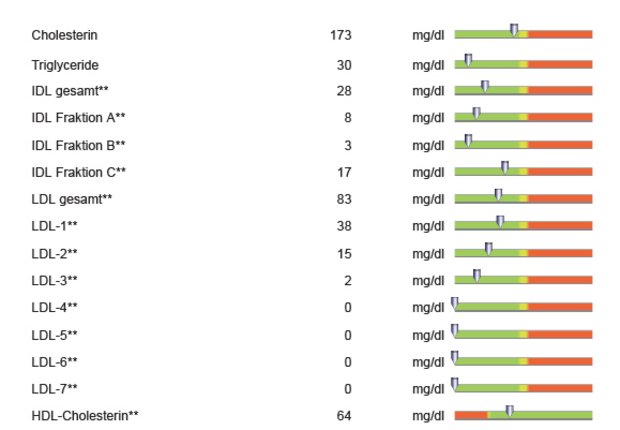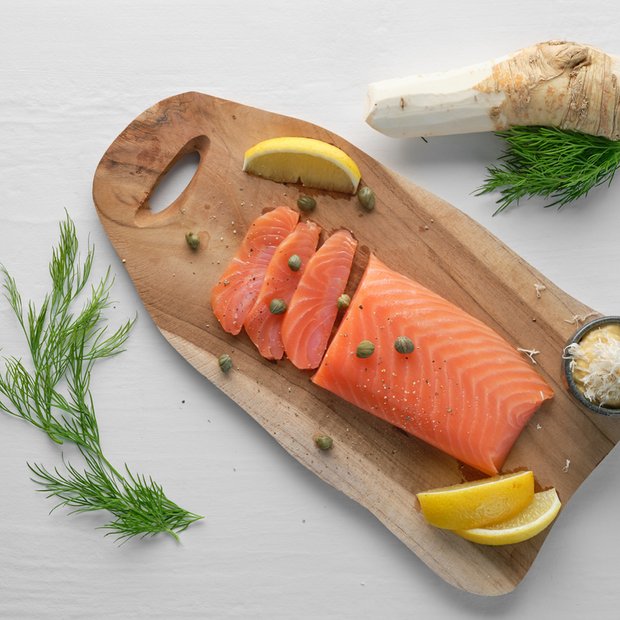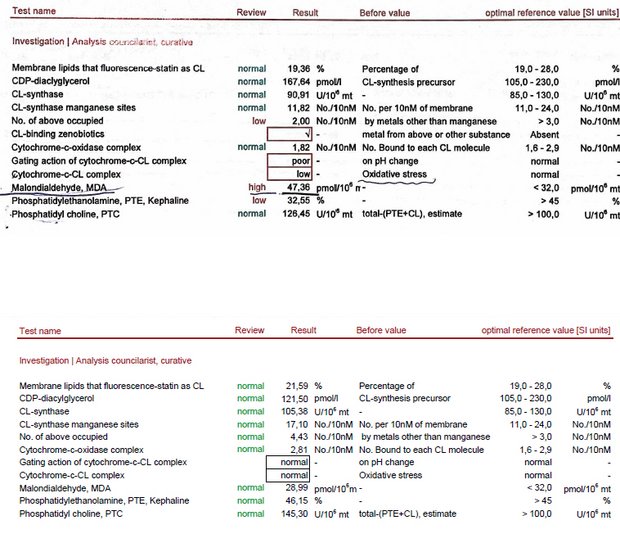THE THING WITH THE
FATTY ACIDS.
OMEGA 3 OR OMEGA 6.
SATURATED OR UNSATURATED.
A LOT OR A LITTLE.
CHOLESTEROL AND TRIGLYCERIDES.

NASTY FAT. EVIL SCHNITZEL.
CHOLESTEROL AND THE FAT SAGA.
If you have a so-called "healthy check-up" with your trusted family doctor, your cholesterol (total, LDL and HDL cholesterol) and your blood lipids (triglycerides) will usually also be determined. If these are elevated, strict adherence to the dietary pyramid propagated by the WHO is usually insisted upon: no fat, no animal fat, little meat and no sugar and instead lots of complex carbohydrates, plenty of unsaturated fatty acids and fish and everything will be fine. If not, then drugs from the statin group are added.
At the beginning of my "patient career", I followed this advice and even intensified it:
For 2 years, I ate only a plant-based diet and consumed unsaturated fats of a plant-based nature like it says in the textbook. The results were manageable. Today I would say that my body survived this time well.
But how did it come about?
It could be a big misunderstanding:
In the middle of the last century, the rising incidence rates of "common diseases" such as myocardial infarction and cancer became a U.S. presidential issue: then-President had suffered several heart attacks himself and wanted a solution to this problem and for his people.

THE SOLUTION.
SEEMS TO BE WITHIN REACH:
It has been proven that the "plaques" that eventually lead to blockage of the (heart) vessels consist of cholesterol. It was also shown that the cholesterol level in the blood could be increased by the consumption of saturated fats and cholesterol in the diet.
The hypothesis was therefore obvious:
Increasing dietary cholesterol intake increases the risk of heart attacks. Done. Although it could be proven that plaques (among other things) consist of cholesterol and that the intake of saturated fats contributes to the increase in cholesterol levels, the causal relationship between cholesterol and the occurrence of "cardiovascular events" could only be shown to a limited extent.
Even the German Medical Journal admitted in 2021 that this could be a mistake: https://www.aerzteblatt.de/archiv/217927/Ernaehrung-Gesaettigte-Fette-nicht-verteufeln
Number 1 cause of death
And let's be honest: with all the effort that goes into medicine, from intensive care and emergency medicine to all the more or less invasive examination and intervention options that are possible today: Bypass, stent, valves, pacemakers, blood thinners, statins, sports, vegan and low-fat food, MR/CT, health check-ups, fitness trackers, cardiac catheters and and and...:
Should diseases such as ischemic heart disease and stroke still be the main cause of death?
Of course, everything must always be considered in relation to each other - at some point we will (almost) all die from these diseases, but when is the question...
How many people in your environment do you know?
who have "problems with the heart"?
https://www.statistik.at/statistiken/bevoelkerung-und-soziales/bevoelkerung/gestorbene/todesursachen
How many of these people eat a "healthy" diet?
In other words, the way it "should be":
Little red meat, little fat, lots of fruit & vegetables, cook for themselves and eat a varied diet?

NOT ALL CHOLESTEROL IS THE SAME.
GOOD AND BAD. OR ARE THERE OTHERS?
In guideline medicine, cholesterol is split into two classes - depending on which "transporter" they use to travel in the blood: The "good" (HDL) and the "bad" (LDL) cholesterol. This is standard practice as of 2024. However, science now knows about 14 different types of cholesterol and knows relatively precisely which are associated with the occurrence of heart attacks and which are not. The same applies to blood lipids such as triglycerides: those blood parameters that are associated with the occurrence of common diseases increase with the consumption of carbohydrates - simple or complex. Those parameters that are associated with "protection" for the heart & co. increase through the consumption of - and now pay attention: Saturated fatty acids.
In my laboratory findings there is a reference to this.
Patients with elevated levels of LDL fractions 3-7 have a high - up to 7 times higher (!) - coronary risk [...].
Cholesterol can do more
The diverse functions of cholesterol in the body, as a building block for hormones, bile acid, vitamins, membranes... are completely overshadowed before the hypercholesterolemia hype...

THE HAZARD POTENTIAL OF UNSATURATED FATS.
FROM RANCID TO MALONDIALDEHYDE.
For several decades, the official doctrine has been "saturated fats are bad / unsaturated fats are good". In the USA, a drug containing the fatty acid C15:0 - a saturated fatty acid - is now gaining ground. It has been impressively demonstrated that it can reduce the incidence of arteriosclerotic diseases and increase physical performance. More on this later, but that's a paradox, isn't it?
I ate a vegan diet myself for years and only consumed fats in moderation and if I did, then only unsaturated omega 3 fatty acids such as those contained in fish oil or linseed oil.
Just like it says in the textbook. The result: I was - let's say - mediocre. Until I made a laboratory discovery by chance: I sent my blood to a laboratory to be tested for intoxication with "environmental toxins", as we affectionately call the man-made poisons of daily use. The laboratory routinely measures MDA, malondialdehyde. MDA is a highly toxic metabolite produced by the oxidation - or "rancidity" - of fats. MDA is carcinogenic and a major burden on the body. MDA is used as a progression marker for serious illnesses, as it can represent oxidative stress in the body.
https://pubmed.ncbi.nlm.nih.gov/37960259/
https://www.ncbi.nlm.nih.gov/pmc/articles/PMC6678812/
https://pubmed.ncbi.nlm.nih.gov/27789233/

MY SELF-EXPERIMENT.
CARDIOLIPIN, PHOSPHOLIPIDS AND MDA.
My findings shocked me. Up until then I thought I was doing everything right when it came to fats. And then: MDA increased, phospholipids low and cardiolipin also impaired.
Then the scales fell from my eyes: You have to keep the gently cold-pressed linseed oil in the fridge and consume it as soon as possible, otherwise it becomes rancid, i.e. oxidized. Like this: And now you put it in your body, confront it at 37°C with a lot of oxygen: the stuff goes rancid immediately, i.e. oxidizes and toxic degradation products are formed. I then did some research and came to the conclusion that I should completely change the fatty acid composition of my diet. I still eat small amounts of omega 3 fatty acids, but I primarily consume saturated fatty acids in the form of clarified butter, sheep's milk products, beef and lamb fat.
Exciting development
Now that it has been postulated for several decades that saturated fats should be avoided, there are now food supplements containing, for example, arachidonic acid (a saturated fatty acid that is mainly found in pork fat and eggs) or pentadecanoic acid, a fatty acid that is mainly found in sheep's milk and whose consumption has even been shown in several studies to have a protective effect on blood vessels and the heart, as well as an anti-inflammatory effect[1]. If you let that melt in your mouth: First they say you should avoid fat and instead reach for healthy vegetable oils and then a few decades later there are capsules with the saturated fats in them that you have long avoided?
Personally, I prefer to eat my fats in tasty food rather than in capsules...
A FEW WORDS ABOUT BLOOD LIPIDS.
TRIGLYCERIDES.
When we talk about so-called blood lipids, we are usually referring to triglycerides. If elevated triglyceride levels are found in a blood test, it is usually recommended to follow a low-fat diet: https://www.netdoktor.de/ernaehrung/lebensmittel/welche-lebensmittel-erhoehen-triglyceride/
In particular, it is recommended to avoid saturated fats of animal origin and instead consume plant-based omega 3 and omega 6 fats from nuts, seeds and fish.
This can be a vicious circle, because a reduced fat intake can lead to more carbohydrates being consumed and these then actually lead to an increase in triglycerides:
https://pubmed.ncbi.nlm.nih.gov/3513615/
https://pubmed.ncbi.nlm.nih.gov/36513452/
My self-experiments have shown that my triglyceride levels remain extremely low even with an extremely high intake of animal fats. For comparison: most laboratories recommend a value of < 200mg/dl.

NEW FINDINGS IN MEDICINE TOO.
MEDICAL JOURNAL QUESTIONS FAT/CHOLESTEROL HYPOTHESIS.
Is the bad image of saturated fatty acids really justified? A closer look at a large number of studies raises questions. Some nutritionists are therefore calling for the strict limits to be relaxed and for more emphasis to be placed on whole milk, cheese and red meat.
We have always been taught that saturated fats are unhealthy. But a closer look at the evidence from the studies raises doubts. There seems to be no evidence that saturated fats are really as harmful as their reputation suggests. Nutritionists are therefore calling for the strict limits for foods with a higher proportion of saturated fatty acids to be relaxed.
[...]
This is what the German Medical Journal wrote in an article published in 2021.
You can find it online here:
It refers to studies that we also mentioned at the beginning:
www.ncbi.nlm.nih.gov/pmc/articles/PMC2125600/

GENETIC INFLUENCE.
ON THE FAT METABOLISM.
The adipolipoprotein ApoE gene is the focus of investigations into which genes have an influence on the tolerance of certain fatty acids. One of the known genotypes (ApoE4) is associated with Alzheimer's and cardiovascular diseases, particularly in the homozygous inheritance (ApoE4/4). These people could actually benefit from a low-fat diet.
It is estimated that around 2% of the population are carriers of this mutation.
https://pubmed.ncbi.nlm.nih.gov/17466101/
https://pubmed.ncbi.nlm.nih.gov/20202805/
https://pubmed.ncbi.nlm.nih.gov/19025720/
https://www.ncbi.nlm.nih.gov/pmc/articles/PMC8073598/
https://www.alzheimer-forschung.de/alzheimer/wasistalzheimer/genetische-grundlagen/apoe4/
Disclaimer
The information and recipes contained on this platform and linked media reflect my personal experience only and are provided for informational purposes and as culinary inspiration. The recipes and nutritional information do not constitute medical advice, diagnosis or treatment and are not intended as a substitute for professional medical advice or treatment. Any recommendations reproduced in the media we maintain are not a substitute for advice from medical professionals or nutritionists. Readers with specific health concerns, food allergies, individual dietary needs or medical conditions should seek professional medical advice before implementing the recipes or dietary recommendations described herein. The author, publisher and operator of this platform accepts no responsibility for any health problems or damage that may arise from the use of the recipes or information contained on this platform. It is strongly recommended that you seek qualified medical advice or consult a nutrition specialist if you have any health concerns or before changing your current dietary habits. The authors and publishers of this media assume no liability for the accuracy or completeness of the information and recipes provided and it is the responsibility of the reader to take allergic reactions, food intolerances or other health concerns into account. Furthermore, neither the authors, publishers nor operators assume any guarantee or liability for the effectiveness of the measures presented. Zarastro GmbH is not responsible for the content of websites accessed via hyperlinks.